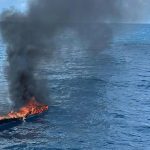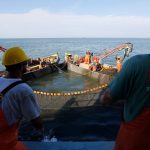According to Swedish scientist the Baltic Sea’s ecological condition is improving. It is mentioned in a report that phosphorus and nitrogen pollution in the Baltic Sea is decreasing. The report establishes the claim of the Swedish scientist. The report is prepared by University of Stockholm and issued by the international Helsinki Commission (HELCOM), which works for protection of the Baltic Sea marine environment.
Professor Fredrik Wolff told the press that the information is more than just a turning point, which is surprising for all of us. He also told that since the 1970s, he has been working on Baltic marine life at the University of Stockholm. This positive result is considered to be an effect of the Baltic Sea Action Plan (BSAP). BSAP was adopted by Ministers of the Environment from the region’s countries two years ago in Krakow.
According to the report Baltic Sea’s current most serious problem is eutrophication, which arises from excessive inputs of nutrients. The Krakow meeting participants agreed on a drastic limitation of pollution aiming to eliminate dead, oxygen-free areas of the Baltic and reinvigorate them with fish and birds. The report recommends that it is good to know that reductions in nutrient loadings have been achieved by most Baltic Sea countries and the long-term results are good but the short-term development (2004–2006) is not as encouraging. Thus, additional reductions are needed.








